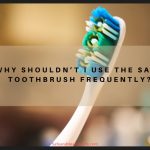
Image Courtesy: Pixabay
There’s a lot of bad information and conspiracy theories surrounding Fluoride lately. Educating people about it is important for long-term dental health.
What Exactly Is Fluoride?
Fluoride is a mineral that is present in abundance in the earth’s crust, and naturally present in low concentrations in most freshwater and saltwater sources. Rainwater may contain Fluoride, and it is present in all vegetation since plants absorb it from soil and water.
The Fluoride in your toothpaste or mouthwash is Sodium Fluoride, a chemical compound that has multiple applications, but since the 1940s has been used to prevent tooth decay.
How Does It Work?
When you eat, your food breaks down and deposits simple sugars in your mouth. These simple sugars feed the naturally-occurring bacteria in your mouth. That sounds friendly, right? But the unfriendly part is that these mouth bacteria excrete acid. Yes, acid. That acid dissolves your tooth enamel.
Tooth enamel is similar to other bones in your body—once it’s gone, it is not regenerated. This makes strengthening and protecting the enamel you have extremely important—that is, if you want to keep your teeth. If you don’t do something about it, the acids will eat away at your tooth enamel and cause caries, more commonly known as cavities.
When you regularly apply Fluoride to your teeth, the Fluoride strengthens your enamel and acts as a barrier to the acids, significantly slowing down the rate at which the acids eat your enamel and making cavities far less likely.
Recent meta-analyses (studies that collate data from hundreds of smaller studies) prove the effectiveness of fluoridated toothpaste for preventing cavities in adults and in children who have their permanent teeth. Studies compared results of brushing with non-fluoridated and fluoridated toothpaste.
What About All of the Dangerous and Harmful Things I’ve Heard About Fluoride?
Simply put, they are not true. Repeated studies since the 1990s have found there is no link with cancer. There is no link to thyroid issues. There is no link with diabetes. There is no cognitive risk to children whose mothers drink fluoridated water while they are pregnant with them. There is no cognitive risk to children who drink fluoridated water in the US. This myth stems from unrigorous studies of children in India and China, where the water is fluoridated at levels twice or triple that of the US, and where the children in question were also daily exposed to arsenic, coal dust, and contaminated foods.
The list of fear-driven fluoride theories linking fluoride to different issues is endless, there’s even one attempting to link fluoride and low IQ scores.
Is There Any Risk At All?
Children 2 and under should not use fluoridated toothpaste because they are more likely to swallow it than spit it out. Over time, this could lead to dental Fluorosis, which usually manifests as faint white dots or streaks on the teeth. They are not usually noticeable, however—except by your dentist!
Like any chemical compound, Fluoride is toxic in very large amounts, but the low levels present in toothpaste and drinking water—even taken together—pose no risk to children or adults.
The Upshot Is…
Fluoride is in just about every tooth-related product on the market, and many communities in the US fluoridate their drinking water. That is because it has long been known to prevent tooth decay. The CDC boasts, rightly, that its efforts to fluoridate drinking water in the US for the past 70 years has led to a measurable improvement in oral health in our country.
We’re not the only country to fluoridate our water for the purposes of improving our population’s oral health. Brazil, Canada, Chile, Ireland, Malaysia, and Vietnam all fluoridate their water, and Germany, Finland, Japan, Netherlands, Sweden, Switzerland, Denmark and Israel fluoridate other popular consumer goods such as salt or milk. Last month, Australia and New Zealand both increased the recommended daily dose of Fluoride for children under 8, the critical time of tooth formation.
So please don’t go looking for non-fluoridated toothpaste! Stick with toothpaste, mouthwash, even water that contain Fluoride. Your teeth will thank you!
…Still, have questions? The CDC puts uploads of details on Fluoride, how it works, and recommended daily doses.
About The Author:
Dr. Nathan Brooks, DDS, lives out his lifelong dream as the owner of Anderson Dental Care in Cincinnati, Ohio. He leads a welcoming, family-focused clinic that offers comprehensive general and cosmetic dental care. With a Master’s in Biology from Purdue University and a Doctorate of Dental Surgery from Indiana University, he continues to pursue dentistry education to better serve and care for patients. On weekends, you’ll find Dr. Brooks, his wife, and their children adventuring outdoors or playing together indoors, depending on the season!




